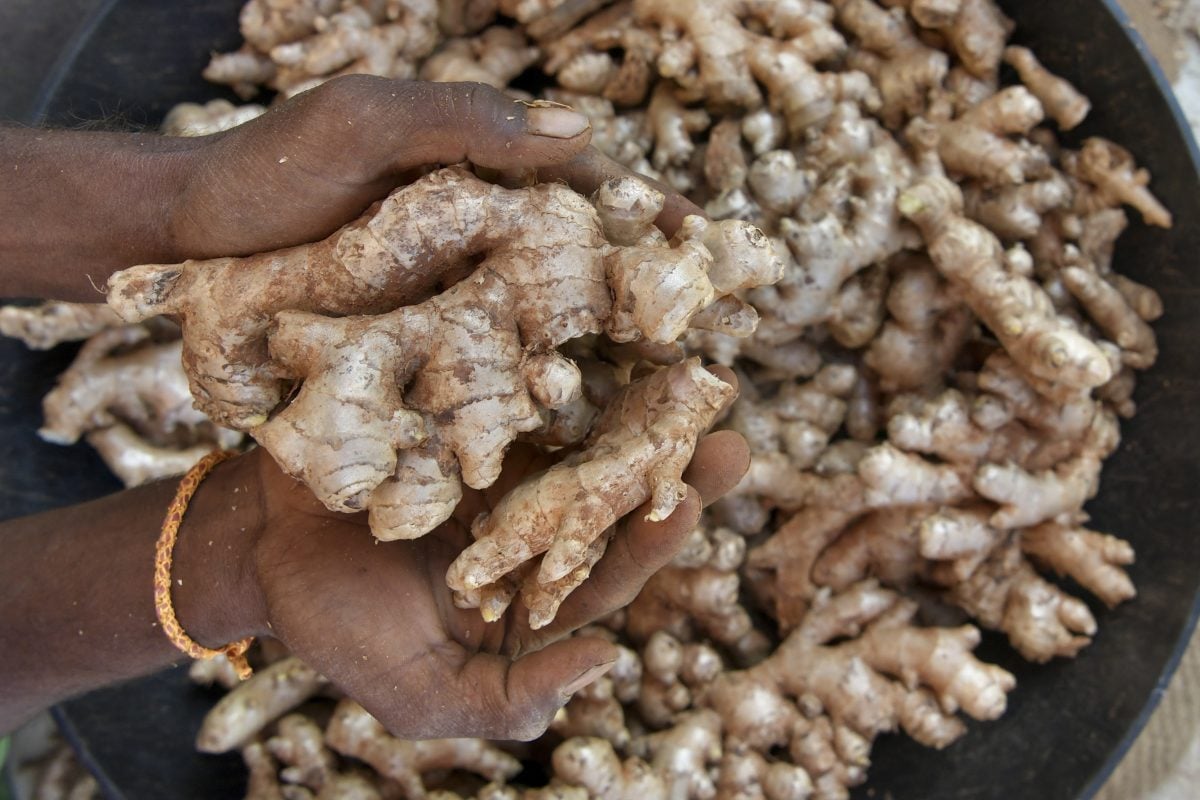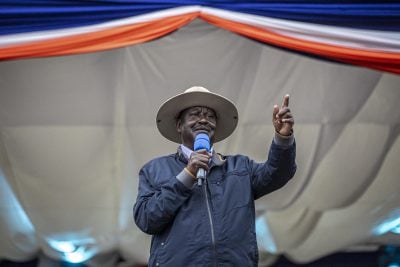On his family’s four-hectare plot in Kurumi Musa in Kaduna State, northern Nigeria, farmer Istifanus Dauda recounts the generations-old cycle of transporting a handful of sacks of fresh ginger by road for several hours to Kachia market and receiving less than N40,000, or $30 for his entire harvest – too little even for luxuries such as schooling for his seven children.
Then, four years ago, everything changed. Istifanus was guaranteed purchase of all the ginger he could produce – and at vastly higher prices. He took on 12 labourers to work alongside his three brothers and two sisters, producing 50 bags of dried organic ginger, and bringing in over a thousand dollars.
“Schooling was a challenge for my family,” recalls Istifanus. “Sometimes we ate only once a day, and there was never enough to be satisfied. Now, farming is easier for me. I don’t have to worry about paying for labour or my children’s school fees – life is much better.”
The buyer of Istifanus’s ginger was Horizon Group Africa, a Kaduna-based spice trader that partners with over 3,000 smallholders by purchasing their crops and securing premium prices through certified seeds, agronomy guidance, improved storage, and organic certification via farmer cooperatives. Horizon also supports growers with training, access to funds for labour, and a scholarship scheme that covers children’s education.
Impact investment pioneer Aavishkaar Capital is supporting the scale-up of Horizon’s model. Its investment will enable the company to more than triple its outreach to 10,000 farmers within three years, boost processing capacity, and also position the continent for a substantial increase in spice exports.
Home to some of the world’s largest spice producers, much of Africa’s spice harvest is still exported raw or not at all, meaning farmers capture only a fraction of the potential value.
Nigeria illustrates both the challenge and the $500m export opportunity. The world’s second-largest producer of ginger, Nigeria accounted for 16% of global production in 2023, yet the country barely enters the top 10 exporters list, capturing less than 3% of global export revenues.
While Nigeria produced 781,000 tonnes of raw ginger in 2023, more than the 697,000 from China and 62,000 from Peru, Nigerian exports of raw ginger generated just $47.5m in 2023 – dwarfed by China’s $581m and Peru’s $120m.
When value is added through processing, the picture transforms: Nigeria has become the leading global exporter in the smaller but higher value market for processed ginger (crushed and ground), earning $29.6m in 2023 and accounting for 22% of worldwide trade.
This contrast shows how Africa’s revenue potential lies in processing, with models like Horizon Group Africa offering the clearest path to unlocking the continent’s spice economy.
Ambitious target
Horizon’s target is a fourfold increase in revenue to $100m within three years, through scaling farmer networks, processing capacity, and international market reach.
Horizon Group Africa is a subsidiary of the wider Horizon group, founded in 2006, which is now focused on agro-commodities and processed foods.
Launched in 2017, Horizon Group Africa manages the group’s agro-commodities business, with a focus on spices such as ginger, turmeric, cloves, cinnamon, cardamom and black pepper.
Its facilities in Nigeria, Tanzania and Madagascar supply markets in the European Union, Asia, and the US. Growing demand for organic food allows the company to command premium prices and margins.
The loan to Horizon marks the fourth investment in Africa from Aavishkaar’s $250m Global Supply Chain Support Fund (GSCSF), created in collaboration with KfW, the German development bank, to target commercial returns alongside positive social impact in Africa and Asia.
The fund recently received an additional boost, with the Japan International Cooperation Agency (JICA) announcing in July a $40m investment to expand support for SMEs across Africa and Asia.
Horizon’s approach of maintaining strong oversight of its smallholder farmer operations, providing training, and ensuring organic certification and full traceability, represents a shift away from extractive commodity trade towards a model that builds resilience and competitiveness on the world stage at the farm gate.
It promotes organic and regenerative agriculture tailored for premium international markets, giving African farmers ultimate access to buyers willing to pay higher prices for traceable, sustainable produce.
By linking thousands of farmers into certified supply chains, the company demonstrates how impact capital can change both household diets and Africa’s position in global markets.
$40bn spice trade
The global spice trade is valued at over $40bn annually, with ginger among the fastest-growing segments. Household incomes among Horizon partner farmers have increased by three to five times, driven by higher yields and premium prices. The company indirectly benefits tens of thousands of dependents across farming households, improving education, healthcare access, and nutrition.
The impact is already visible. Back in Kaduna State, farmer Handan Haruna remembers his parents struggling to sell ginger at Kano market for just N70 a bag. With three brothers and three sisters, he grew up helping on their 10-hectare plot, but money was always tight and schooling beyond elementary level was out of reach. Since partnering with Horizon, Handan has boosted his yields from 500 to 800 bags per hectare and now cultivates four hectares.
“Before, we could only farm what we could carry,” says Handan. “Now, I can hire workers, store my harvest, and all my six children – boys and girls – are in school. Farming finally offers hope for the next generation.”
Want to continue reading? Subscribe today.
You've read all your free articles for this month! Subscribe now to enjoy full access to our content.
Digital Monthly
£8.00 / month
Receive full unlimited access to our articles, opinions, podcasts and more.
Digital Yearly
£70.00 / year
Our best value offer - save £26 and gain access to all of our digital content for an entire year!
 Sign in with Google
Sign in with Google 



